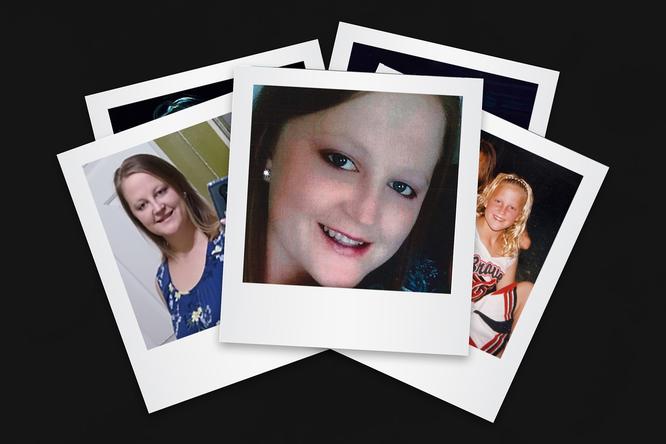26
03/2022
Read this article in Spanish.
Eighteen miles south of the Central Valley home that was his prison, off Highway 99, past almond orchards and trucks overloaded with hay bales, is the Madera County Superior Court. The four-story steel structure with its pale granite exterior features 10 courtrooms, large flat-screen monitors and a glass-enclosed atrium.
The courthouse opened in 2015 in this county of 160,000 people, as part of a decades-long effort to shift funding and oversight from local courts to the state and ensure equal access to justice for all Californians.
"The Wooden Courthouse was designed to demonstrate the transparency and dignity of democracy, providing a venue to facilitate the operation of American ideals of justice," reads the architect's website.
Calley Garay, a 32-year-old mother of three young children, came here in June 2020 seeking protection from her abusive husband.
Julio Garay warned her that a restraining order was nothing more than a piece of paper and she would not keep him away, court records show.
But each time the beatings got worse, the threats became more disturbing and the local police were still investigating her accusations. She needed help. So, in June of last year, planning a new life with her children free from her control, Calley filed the standard application for a domestic violence restraining order. Her petition was one of 72,000 such forms Californians, mostly women, filed statewide that fiscal year, including 211 in Madera County.
We are now married or registered domestic partners Ella Applies ella.

We are the joint parents of a child or children under the age of 18. Apply.
I believe the person…owns or possesses guns, firearms, or ammunition.Applies
@XboxSupport My son has an XBox live enforcement but when I follow the links it says he has no violations and gives… https://t.co/I7rOUd9zlk
— Me Sat Oct 20 14:34:54 +0000 2018
The answer to that last question on Calley's form told the court that her case could be particularly dangerous. Research shows that the presence of a firearm increases the likelihood that domestic violence will turn deadly. That's why people who are the subject of a restraining order in California, even a temporary one, can't have guns. By law, they are supposed to surrender their weapons to the Police or an authorized dealer within 24 hours of surrendering the restriction.
And if a simple checkbox wasn't enough to get a judge's attention, Calley attached more than a dozen pages of horror to the form, including descriptions of assaults and photos of bruises on her leg, back and chest.
Throughout it all there was mention of a gun, a gun that her partner had in her pocket when she yelled at him outside of her son's school. A gun when she threatened to take her to the orchards and kill her.
What happened to Calley Garay, a story that culminates this week in the Madera court, is about something that goes beyond the case of a woman. It's about California's failure to disarm abusers, a far-reaching failure that judges, advocates and law enforcement have been warning about for years.
CalMatters spent months reviewing government reports, reviewing case files in multiple counties, and interviewing people across the state. The report shows that equal access to justice remains elusive. The protections domestic abuse survivors get from the courts vary widely, depending on where they live or the judge handling their case.
And California, which has arguably the strictest gun control measures in the country, too often struggles to enforce those laws.
In July, CalMatters reported on the state Department of Justice's difficulty clearing a backlog of cases in its Armed and Banned Persons System, a database of known gun owners who are prohibited from owning firearms due to a conviction. or other court order. At the beginning of this year, 24,000 people were in the system, including almost 4,600 due to a restraining order. Those are just the people California knows. It does not include the many people, like Julio Garay, who abuse survivors say have unregistered firearms.
In the request for a restraining order, Calley ended her request with a description of an attack on May 7, 2020, the one that caused her to leave, telling the court about how afraid she was of her.
“He has always told me that a restraining order is not bulletproof and that he will find me,” she wrote.
A month later, she did.

- 863
- will county womens health center
Related Articles
How many sit-ups should I do a day to get rid of my belly?
30/01/2022Flattening the abdomen or reducing the fat in this area is a difficult task. But don't despair, we will solve the question: how many sit-ups should I do a day to eliminate the belly. Abdominal fat...
Jalisco The Ministry of Health invites men and women to learn about family planning services
04/02/2022The Jalisco Ministry of Health invites men and women of reproductive age to learn about and use the various services offered by the Family Planning and Contraception Program, which...
Coronavirus Spain today | | Health The Trust Project
18/03/2022The Ministry of Health has reported 3,261 new coronavirus infections and 155 deaths, while the cumulative incidence drops more than six points in 24 hours to 109.3 cases. There is...
Telva International day against gender violence: screens multiply mistreatment against women
01/02/2022SaludUpdated Change of scenery, same victims. On the International Day for the Elimination of Violence against Women, we highlight how aggressions have been copied to the digital sphere, increasing...